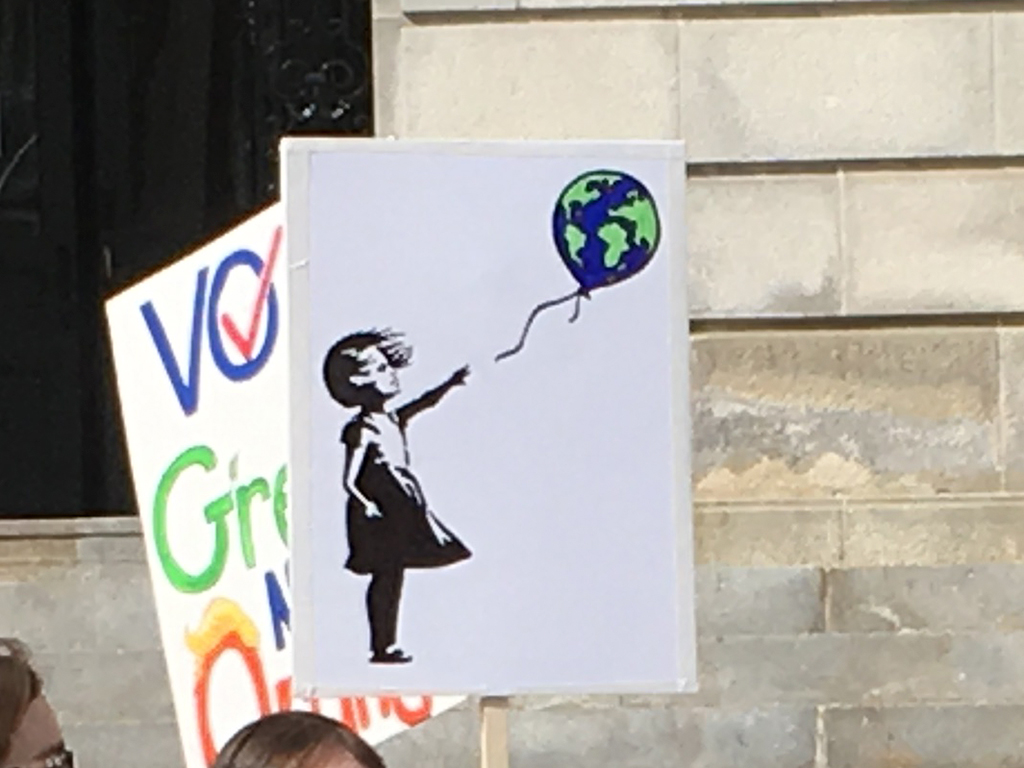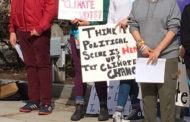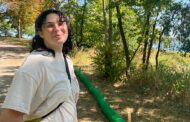We’re All in This Together
Climate Solutions Beyond Your Backyard
Faith, Stewardship & Climate Justice
By S. Kathleen Smith, RSM

What does it mean to be stewards of the earth and what is my part in stewardship? These are questions that I ask myself when thinking about climate change and as I hear about more severe weather events on television and the radio. I compost my garbage scraps, I recycle, and I even pick up litter on the streets (lots of face coverings these days). Isn’t that enough?
Yet I understand that the problem is a global one and requires a global response. My faith leader, Pope Francis has called on all people of goodwill to come together to work towards mitigating the effects of climate change for future generations. But imagine an opportunity to engage in a group effort to enact policy at the national level, to mitigate global warming through stimulating a shift in the U.S. economy away from fossil fuels and toward renewable energy. Imagine your own personal effort being magnified by the voice of your community, being sent to your members of Congress, and resulting in transformational national policy.
Simply put, it’s time to cut our carbon loading of the atmosphere.
Top economists and climate experts agree that charging a fee for the carbon pollution generated by fossil fuels is an important part of the strategy to do so. Charging for this pollution is called “carbon pricing.” Carbon pricing is being practiced in over 40 other countries — though not yet in the worst per capita CO2 offender, the USA. But now, due to the efforts of thousands of volunteers with the national Citizens’ Climate Lobby, there is a bill before Congress called the Energy Innovation and Carbon Dividend Act that proposes cash-back carbon pricing.
This involves levying a fee on all fossil fuels at their source and returning all revenues from this fee directly to American households on an equal per capita basis through monthly dividend checks. This cash-back feature makes the policy equitable, benefiting low-income households proportionately more than wealthy households.
This is the hope I have right now, and this hope is echoed by US Catholic Bishops Conference: “this proposal is expected to result in significant reductions in greenhouse gas emissions. ‘It is encouraging that initial analyses suggest that low-income individuals will overwhelmingly benefit from this policy.’”
Since I have accepted the inevitability of extreme weather events in the future, I support measures that will mitigate these effects with a special care for those persons who are at risk, and I invite all persons of faith to join in this effort. Not for ourselves alone but for the children being born into our world right now and for the future of all Earth’s inhabitants. That’s what stewardship looks like.
S. Kathleen Smith, RSM is a member of Citizens’ Climate Lobby. Read more from their ongoing series; We’re All in This Together.






One Comment
David
Part of our stewardship of the earth is simple–burn less fuel. Walk/bike more. Helping to make this easy…well, it’s not so easy.
I’ve been subscribing to the Bloomberg CityLab Newsletter: nowhttps://www.bloomberg.com/account/newsletters/citylab-daily?source=NLshare
A recent article presented the “Open Streets” concept, which has been successfully put to use here in Portland, with partially or completely vehicle-free streets.
I was wondering about making Brackett Street a one-way street between Spring and Pine…there are several businesses that would thrive all the more w/ increased outdoor dining space. The OHNO Cafe could surely use a closure in that block as well! Unidirectional traffic flow would probably reduce idling, and would surely be safer for student pick-up and drop-off at the Reiche School.
The school and the various businesses would all have to be involved in this proposal, but I am trying to open a discussion on this topic.
Sincerely,